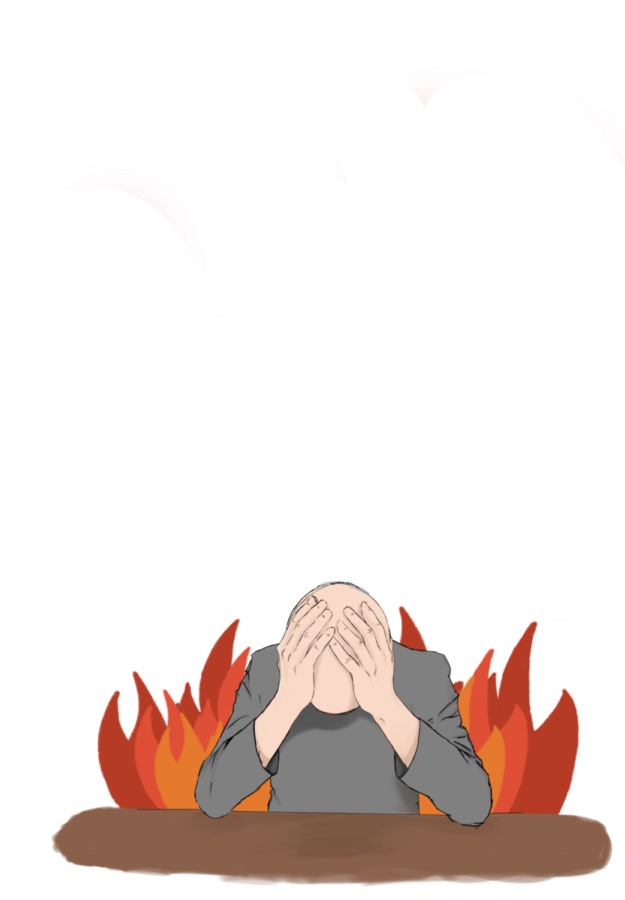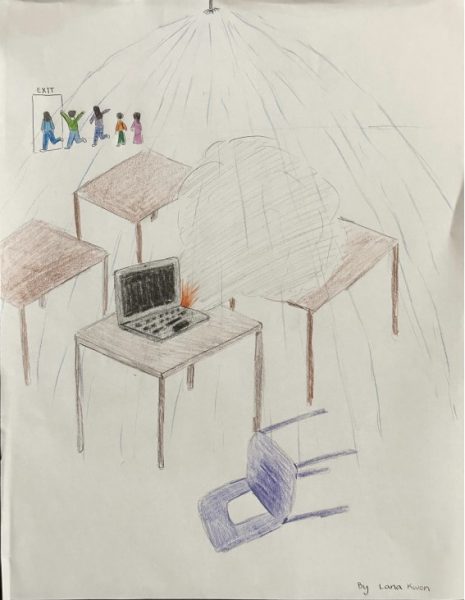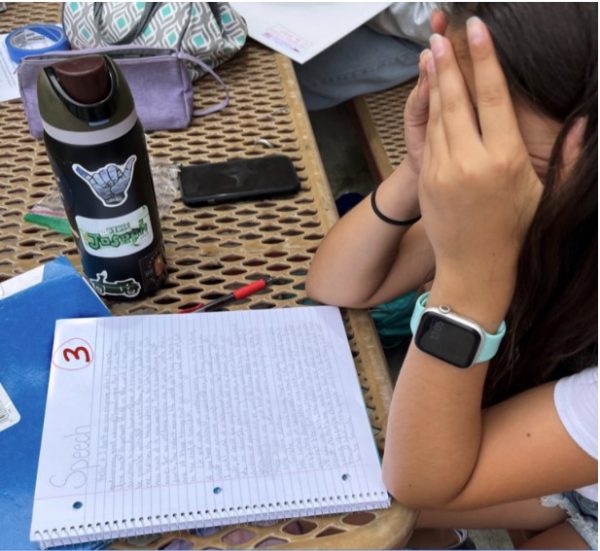Staff Editorial: Addressing Student Burnout
With classes back in full-swing, students may start to experience severe fatigue that can be combated through mindfulness techniques
Burnouts can have disastrous long-term effects if not properly addressed.
Burnout, a term we have likely all heard at least once throughout our academic career, is something feared by many students. Although we hear about it frequently, many students are not able to identify the symptoms early on, leading to an increase in the chances of burnout. It is important to understand and recognize burnout as the academic year accelerates, as well as learn about how to prevent burnout and how to recover.
With the high expectations placed on students, the word “burnout” seems to have become synonymous with “student success.”
According to the American Psychological Association, burnout is identified by “feelings of energy depletion or exhaustion, increased mental distance from one’s job or feelings of negativism or cynicism related to one’s job, and reduced professional efficacy.”
Though many symptoms of anxiety and depression coincide with symptoms of burnout, burnout is not classified as a mental illness but instead is strictly termed as a work- or school-related phenomenon.
Warning signs for student burnout come in many different forms; it could be someone you know becoming more irritable than normal or a lack of motivation in your own projects.
According to Edumed.org, “Burnout can manifest in specific symptoms…including decreased motivation that leads to a drop in academic performance.”
Each person presents warning signs of burnout differently, which is why it is so important to be aware of both your classmates’ situation and your own. The struggle comes with noticing things about yourself; becoming more anxious and less motivated may be an obvious change to the people around you, but an invisible difference to yourself. Therefore, it is vital to reach out to those around you if you see them struggling, as you could be the line between someone’s student burnout getting better or getting worse.
“While sometimes the source of burnout is obvious, other times you need to do a little digging to get at the root…If you find yourself in this situation, stop to think about what could be causing these feelings,” (EduMed).
This snap in reality is so crucial because the only person who can save you from the forest fire of student burnout is yourself.
Though burnout may seem quite difficult to solve while in the moment, sometimes all we really need to do is take a step back and try to find a calm state of mind.
Junior Shrinidhi Sriram, a member of Hope Squad, sees burnout as “when you feel overwhelmed or really stressed about doing certain things.”
According to Sriram, some of the best ways to recover from burnout is to really just step away from your work and do other activities. Talking to family and friends, or reaching out and talking to your community can help with the recovery process.
“Doing some physical activity…seriously, doing anything like swimming [or] doing yoga, exercising just takes your mind off whatever you’re stressing over,” Sriram said.
For the underclassmen coming to Woodbridge High, some other ways to help recover from burnout is to reach out to trusted adults; talking with your friends and relating your workload to get through it together could be more impactful than you think.
“During my ninth grade year, I was really stressed out because it was my first time taking an [Advanced Placement] (AP) class, AP [Human Geography]. I reached out to [Megan Humphreys], who is our mental health counselor, and we just talked. She gave [me] this app to help me meditate [Breathly]. So, I feel like that’s something to really look into,” Sriram said.
Ultimately, Sriram encourages others to persevere through the burnout.
“There are so many people [you] can reach out to. It’s not the end of the world and [you] can get through it,” Sriram said.
Unfortunately, students often romanticize burnout. It is not unfamiliar to overhear students laugh or compare how many hours of sleep they’re lacking, or how many missing assignments they are working on. It’s commonly seen or thought of as something to brag about.
Romanticizing burnout does a disservice to everyone; those engaging in it and those hearing about it. But by addressing, preventing and managing the symptoms, we can commit to the wellbeing of ourselves and those around us.
Your donation will support the student journalists of Woodbridge High School. Your contribution will allow us to purchase equipment and cover our annual website hosting costs.

Hey Warriors! My name is Ruby Yang and I am so excited to serve as a Co-Editor-in-Chief. This is my fourth year in Golden Arrow and my second year as Co-EIC....







